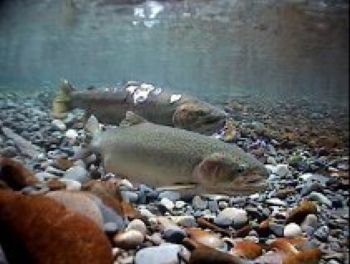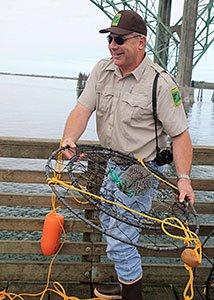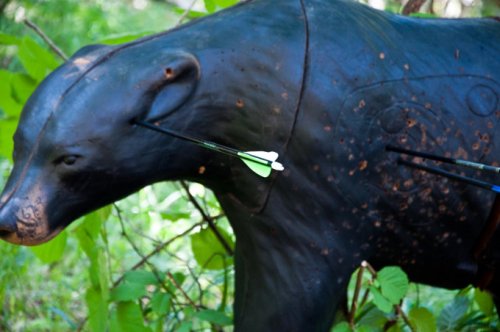New University of Oregon Hall of Fame Class Announced
They will join 182 elite athletes and 25 teams who have been selected as part of the school’s athletics showcase that originated in 1992.

(EUGENE, Ore. ) — The University of Oregon’s 2001 football team, which came close to playing for a national championship, and three members of the Ducks’ 2002 men’s basketball team which advanced to the Elite Eight of the NCAA Basketball Tournament, headline five individuals and one team to be inducted as part of the University’s 23rd Athletics Hall-of-Fame class during this weekend’s activities surrounding Saturday’s football game against the University of Wyoming.
The Ducks’ 2001 team, led by Heisman Trophy finalist Joey Harrington, was the winningest football team in school history at that time and finished the year ranked second in the country following a dominating 38-16 win over Colorado in the 2002 Fiesta Bowl. Yet after accumulating a 10-1 regular-season record and an outright conference title, Oregon was passed over by a Nebraska team that had lost its conference championship game to Colorado for a berth in the BCS National Championship Game against Miami.
The trio of Luke Jackson, Freddie Jones and Luke Ridnour led Oregon to a 26-9 season and the 2002 regular-season Pac-10 Conference men’s basketball title before coming within one win of reaching the Final Four.
They will be joined by Lexie Miller, who remains as one of the top women’s hurdlers in school history from 1980-83, and Pat Johnson, a two-sport standout and All-America sprinter who also aided Oregon’s run to the 1995 Rose Bowl, with the inductees to be honored at Friday’s Hall-of-Fame dinner in the Club at Autzen before being introduced during Saturday’s 11 a.m. football game with Wyoming.
To be eligible for induction into Oregon’s Athletics Hall of Fame, former athletes, coaches, administrators and teams associated with the Ducks must have departed the University for a minimum of 10 years.
They will join 182 elite athletes and 25 teams who have been selected as part of the school’s athletics showcase that originated in 1992.
2014 HALL-OF-FAME INDUCTEES:
Luke Jackson (2000-04):
The 2004 Wooden and Naismith Award finalist evolved from hometown hero into one of the best players in the country. Only the second player in league history to accumulate 1,900 career points, 700 rebounds and 400 assists, he was an integral part of Oregon’s magical 2001-02 season that saw the Ducks win their first outright conference title in 63 years and advance to the NCAA Tournament’s Elite Eight. As a senior during the 2003-04 season, the consensus All-American was one of only six players in the nation to lead his team in scoring (21.2 per game), rebounds (7.2) and assists (4.5). The all-Pac-10 first-team selection was second in the conference in scoring his final year and 14th nationally. Some of the most iconic performances in school history were scripted by the Creswell native - the most remarkable of which came in the opening-round win of the 2004 National Invitation Tournament against Colorado. The 6-7 forward scored 29 consecutive points in the second half and overtime to rally the Ducks from an 18-point deficit. He had 40 overall on the night in arguably the most impressive individual performance at venerable McArthur Court. He also scored the most points ever by a Duck at Mac Court with 42 against No. 14 Arizona. Selected 10th overall by the Cleveland Cavaliers in the 2004 NBA Draft, Jackson finished his collegiate career ranked in an unprecedented nine career top 10 categories, while his 656 points as a senior were the second most in a single season for the Green and Yellow. Ten years after his final game in an Oregon uniform the school’s second-ranked scorer of all time and free throws record holder (506), also remained second in steals (160), fourth in field goals (645), fourth in free throw percentage (.849), sixth in three-point field goal percentage (.402) and eighth in rebounds (746).
Pat Johnson (1994-97):
Questions lingered early whether he was a standout football player running track or a track phenom who played football. But there certainly was no debating that the Redlands, Calif., two-sport All-American could run, and run very fast. After setting the Ducks’ all-time freshman receiving record (30 catches, 472 yards) for a team that advanced to the 1995 Rose Bowl, the Ducks’ best multiple-event sprinter ever won the Pac-10 Conference 400-meter title and finished second in the league-championship 200 as a true freshman. Before he was finished, the two-time track & field All-American ranked among the school’s top three finishers of all time in the 100 (10.26), and 400 meters (45.38) while equaling Oregon’s 200-meter best (20.39). While there was no denying his prowess on the oval, it was the football field which provided his greatest theater. He emerged from a pack to return the opening kickoff 89 yards for a touchdown at Washington in 1995 to spearhead the Ducks’ first win in Seattle in 15 years. He struck again two years later in the same venue to haul in a diving 29-yard scoring catch in the final minutes to secure Oregon’s 31-28 win against its Northwest rivals. He capped his collegiate career on the receiving end of a 69-yard touchdown pass on the first play from scrimmage in the 1997 Las Vegas Bowl to increase his number of career scoring grabs longer than 40 yards to nine. Yet fewer single-game moments were any brighter than his 337 all-purpose yards in the 1997 regular-season finale vs. Oregon State which fell one yard shy of Ahmad Rashad’s single-game school record. Finishing third in the country in kickoff returns in 1996, the second-team All-America kick returner was drafted in the second round of the 1998 NFL Draft by Baltimore.
Freddie Jones (1998-02):
Oregon’s two-time prep player of the year and 1997 state scoring champion was considered to be the spark to jump-start Ernie Kent’s efforts to resurrect a program that had advanced to the NCAA tournament only once in the previous 38 years. The high-flying artist proved to be at his best in the open court and would dazzle fans and opponents alike with his ability to finish a fast break high above the rim with a thunderous dunk. The 2002 first-team Pac-10 all-conference standout and three-year starter finished fifth in the conference in scoring as a senior (18.6 avg.) for a team that won a share of its first conference title in 57 years and advanced to the 2002 NCAA Tournament Elite Eight. He also played a key role in the Ducks’ 2000 NCAA tournament run prior to earning third-team All-America acclaim and a spot among the 2002 Wooden Award finalists. Scoring a single-game high 36 points on two separate occasions, he completed his collegiate tenure becoming Oregon’s first player ever to rank among the top 10 in eight different career statistical categories. His 650 points scored as a senior ranked second on the program’s all-time single-season list and he graduated as the fifth-leading scorer (1,644 points) in school history. The first-team all-district choice also broke the Ducks’ single-season standard for most free throws made as well as equaled the school record for most steals in one year. The 14th pick in the 2002 NBA Draft enjoyed a seven-year NBA career before being inducted into the Pac-12 Conference’s Hall of Honor in 2014.
Lexie Miller (1980-83) :
She was much more than an extraordinary hurdler who proved to be among the nation’s best. She was the backbone of a women’s track & field program that was dominant among the dual-meet circles in the 1980s and ‘90s, and helped fuel the Ducks to top-five national-meet finishes each of her final three years. Before her career was complete, the Montana native had competed in the 400 hurdles in the 1980 and ’84 Olympic Trials, had played a role in setting no fewer than 10 school records, and accumulated 12 conference titles. Her spirit and competitive drive helped Oregon set the tone for a 19-3 dual-meet record during her four-year reign, with the school finishing first (1980), second (1981) and third (1982, ’83) in final dual-meet rankings according to Track & Field News. She established school records in the long jump, 100- and 400-meter hurdles before the end of her sophomore season. But that was just the beginning. By the end of her collegiate career, she was the holder of school records in both hurdles disciplines as well as the long jump (19-9.5), and ranked among the program’s top-10 performers of all-time in six events. Three decades later her school records withstood the test of time, with her best 100 hurdles mark (13.67) remaining untouched until 2012 while her 400-hurdles pinnacle (57.08) was still standing some 31 years after breaking the previous record in 1983.
Luke Ridnour (2000-03):
One of the most gifted point guards in school history created an instant buzz on campus with his precision passing and remarkable dribbling skills. Accentuating his lore as a tireless competitor by finding a way into Mac Court after hours, Oregon’s floor general started 96 consecutive games and directed it to the 2002 Pac-10 regular season title - the Ducks’ first outright crown since 1939. The Blaine, Wash., native was truly outstanding in the 2002 NCAA Tournament where he helped lead Oregon to the Elite Eight. Earning 2001 Pac-10 Freshman of the Year honors following his initial campaign in Eugene served as a warm-up for his final two seasons. As a sophomore, the all-league selection used the 2002 NCAA tournament to showcase his skills. In one of the most underrated classics in school history, Ridnour scored 28 points on 7-of-11 shooting from three-point range as Oregon eclipsed a strong Wake Forest team in the second round. The two-time Associated Press All-America honorable mention pick and 2003 Pac-10 Player of the Year averaged 19.7 points and 6.6 assists per game his final season in leading Oregon to the 2003 Pac-10 Tournament crown and a second straight NCAA appearance. He set the school record with 218 assists as a junior and scored 649 points that year to rank third in school history at the time. He also surpassed a conference pinnacle by making 62 consecutive free throws. The 14th overall selection by the Seattle Supersonics in the 2003 NBA Draft still ranked 15th in career scoring (1,399 points), third in assists (500), third in three-point field goal percentage (.859), fifth in steals (150), and sixth in three-pointers (203) some 11 years after his final game as a Duck, and went on to enjoy the longest NBA career of any Oregon alum.
2001 Football Team:
There may have been Oregon teams more talented but none reached heights. Certainly the record would reflect that there were few better as the 11-1 ledger would include the most wins in Oregon history, not to mention an unprecedented No. 2 season-ending national ranking. Although it was the Ducks’ Hall-of-Fame quarterback who would serve as the face of the program, the Fiesta Bowl champions represented so much more than just one player. Under seventh-year head coach Mike Bellotti, three players were awarded first-team Pacific-10 Conference all-league honors, two received All-America acclaim, and 14 players from Oregon’s third outright conference champions in school history would go on to hear their names called during the NFL Draft over the course of the next four years. This was in addition to a Heisman Trophy finalist, the conference’s Offensive Player of the Year and the Fiesta Bowl MVP. Only a seven-point setback to Stanford would stand in the way of an unblemished season and a probable date in the National Championship game, which many felt Oregon so richly deserved. But there was a sense of destiny which prevailed as five of the 11 victories materialized by a margin of one touchdown or less and the Ducks found themselves trailing in the fourth quarter on four of those occasions. Yet above the individual accomplishments was a bond that elevated the finished product above its components, culminating into a team that overwhelmed third-ranked Colorado, 38-16, to claim a third-straight post-season triumph.
Source: goducks.com



